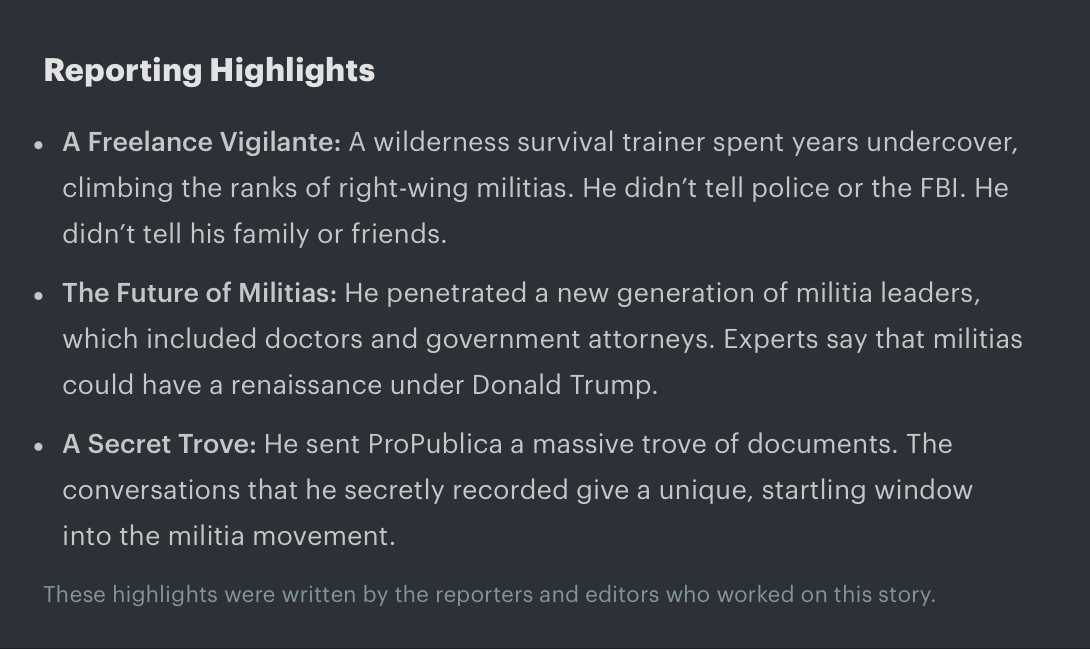Outraged by the Jan. 6 Capitol riot, a wilderness survival trainer spent years undercover climbing the ranks of right-wing militias. He didn’t tell police or the FBI. He didn’t tell family or friends. The one person he told was a ProPublica reporter.
TL;DR
That’s a terrible tldr, with no actual content. Its more of an intro…
Here is a better one (IMO):
Williams became a state-level leader in one militia and gained direct access to prominent national figures. However, his actions - such as warning journalists about threats and trying to derail militia activities - put him in danger of being exposed. When his warnings were publicized, he fled, fearing for his safety.
Now living in hiding, Williams is determined to continue his fight against militias. He plans to release his findings publicly, aiming to sow paranoia within these groups and expose their ties to law enforcement.
Here are some of John Williams’ most concerning findings from his infiltration of militias:
• Williams uncovered extensive ties between militia groups and law enforcement, including direct relationships with sheriffs and police officers who shared the militias’ ideologies. For example, a Utah sheriff was reportedly close with Oath Keepers and facilitated introductions to state officials.
• Some militia members held significant positions of authority, including a city prosecutor, an Air Force reserve master sergeant, and a doctor affiliated with a major healthcare provider. These members leveraged their professional roles to advance the militia’s agenda.
• Militias conducted targeted surveillance on journalists, student reporters, and political activists, going as far as staking out homes and compiling detailed “doxing” files with personal information, including addresses and family details.
• Members of these groups frequently entertained discussions about violent action, including assassinating politicians and attacking perceived enemies. Although some of these discussions were logistical debates, they underscored a willingness to act violently if conditions aligned.
• Despite the fallout from the Capitol riot, Williams observed the resurgence of militias like the Oath Keepers and AP3. Recruitment was increasing, and the groups were consolidating resources, retraining, and preparing for future operations ahead of the 2024 election.
• Groups were not acting in isolation. Williams facilitated and documented collaborations between AP3, the Oath Keepers, and other extremist factions, including joint training exercises and intelligence-sharing.
• Williams manipulated a young militia recruit, who later revealed having compiled doxing files and participated in intimidating surveillance activities. This demonstrated the militias’ appeal to and radicalization of younger, vulnerable individuals.
• Militias engaged in extensive paramilitary training, including the use of improvised explosives, ambush tactics, and firearms. Leaders emphasized preparing for a potential collapse of democratic systems or violent conflict.